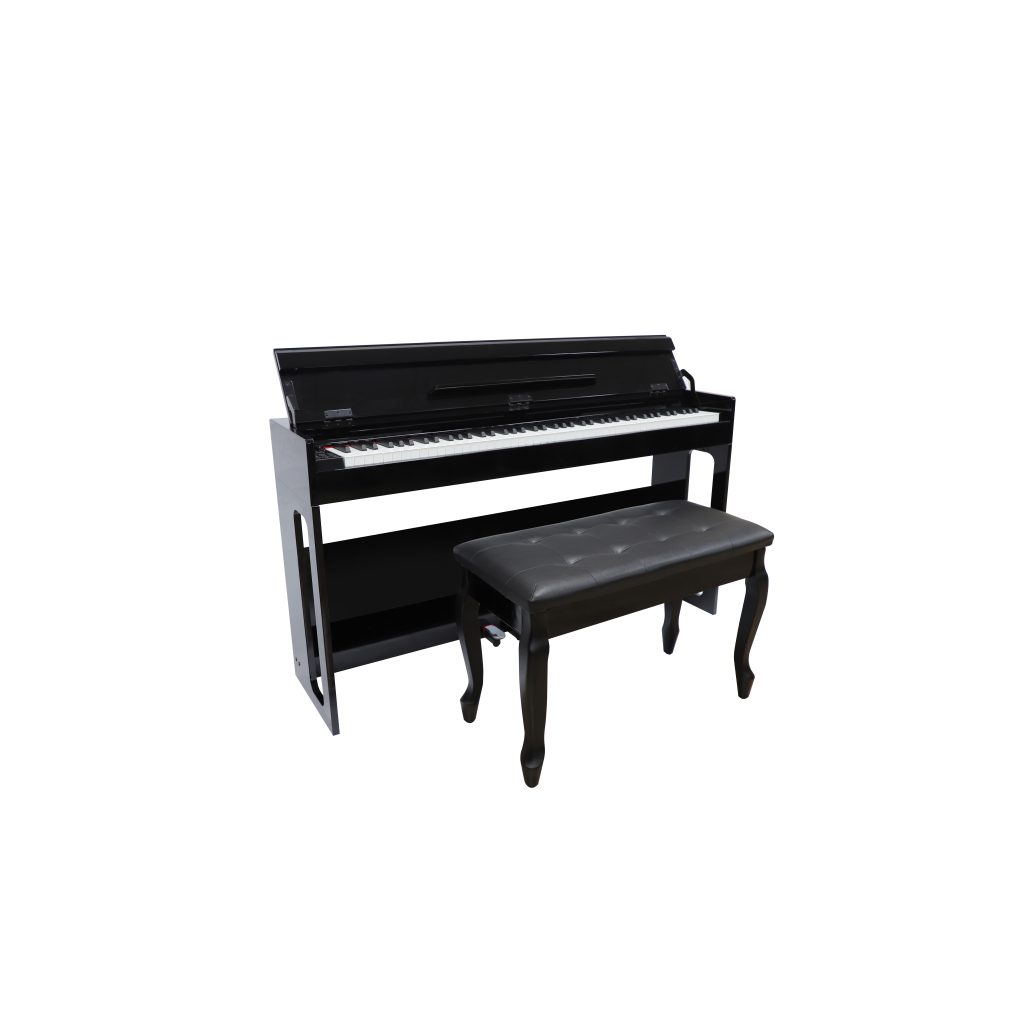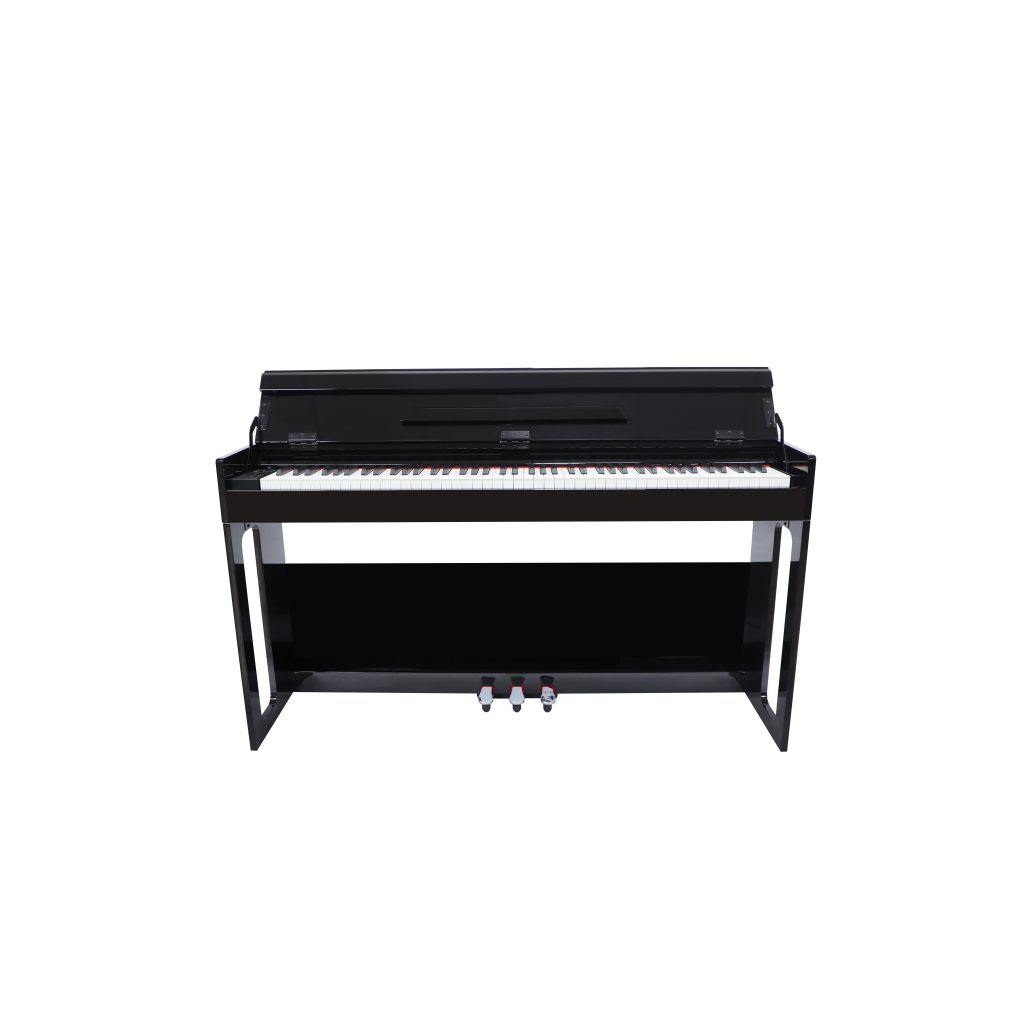

Embracing the Melody of Innovation
In a world where technology continuously evolves, electronic pianos have emerged as a testament to the harmonious blend of tradition and innovation. Offering versatility, portability, and an array of digital features, electronic pianos have revolutionized the music industry, captivating musicians and enthusiasts alike.
Understanding Electronic Pianos: A Deep Dive
Evolution and Design
Electronic pianos, also known as digital pianos, have evolved significantly since their inception in the mid-20th century. Initially designed to replicate the sound and feel of acoustic pianos, modern electronic pianos boast advanced technology that simulates the nuances of traditional instruments while offering a myriad of additional features.
Key Features
Sound Quality
One of the defining characteristics of electronic pianos is their exceptional sound quality. Utilizing sampled recordings of acoustic pianos, electronic pianos produce rich, authentic tones that resonate with clarity and depth.
Touch Sensitivity
Many electronic pianos feature touch-sensitive keys, enabling players to control the volume and dynamics of their performance with precision. This feature mimics the responsiveness of acoustic pianos, allowing for expressive playing styles.
Portability
Unlike their acoustic counterparts, electronic pianos are lightweight and portable, making them ideal for musicians on the go. Whether performing on stage or practicing at home, the compact design of electronic pianos ensures convenience without sacrificing quality.
Versatility
Electronic pianos offer a wide range of sounds and instrument settings, allowing players to explore various genres and styles. From classic piano tones to orchestral instruments and synthesizer effects, electronic pianos empower musicians to unleash their creativity and experiment with different sounds.
Advantages Over Acoustic Pianos
Portability: Electronic pianos are significantly lighter and more portable than acoustic pianos, making them ideal for gigging musicians and traveling performers.
Maintenance: Unlike acoustic pianos, which require regular tuning and maintenance, electronic pianos are virtually maintenance-free, saving time and money for musicians.
Affordability: Electronic pianos are generally more affordable than acoustic pianos, making them accessible to a broader range of musicians, from beginners to professionals.
Choosing the Right Electronic Piano: A Buyer’s Guide
Considerations
Budget
Before purchasing an electronic piano, it’s essential to establish a budget that aligns with your financial resources. Electronic pianos are available at various price points, ranging from budget-friendly options to high-end models with advanced features.
Features
When selecting an electronic piano, consider the features that are most important to you. Whether you prioritize sound quality, key action, or connectivity options, choose a model that meets your specific needs and preferences.
Brand Reputation
Research the reputation of different electronic piano brands to ensure quality and reliability. Established brands such as Yamaha, Roland, and Kawai are known for producing high-quality instruments with innovative features and exceptional performance.
Testing and Evaluation
Before making a purchase, it’s advisable to test multiple electronic pianos to compare sound quality, key action, and overall feel. Visit music stores or attend industry events to experience different models firsthand and make an informed decision.
Maintenance and Care: Preserving Your Investment
Cleaning and Dusting
Regularly clean your electronic piano with a soft, dry cloth to remove dust and debris from the keys and surfaces. Avoid using harsh chemicals or abrasive materials, as they may damage the instrument’s finish.
Environmental Considerations
Store your electronic piano in a climate-controlled environment to protect it from extreme temperatures and humidity levels. Exposure to moisture and fluctuations in temperature can damage electronic components and affect performance.
Software Updates
Stay informed about software updates and firmware releases for your electronic piano. Manufacturers often release updates to improve performance, add new features, and address any issues or bugs.
Conclusion: Embracing the Future of Music
In conclusion, electronic pianos represent a harmonious fusion of tradition and innovation, offering musicians unparalleled versatility, portability, and sound quality. Whether you’re a seasoned professional or an aspiring enthusiast, an electronic piano is a worthy investment that will inspire creativity and elevate your musical journey.
Electronic piano like instrument develops rapidly.
Our company is a comprehensive enterprise ingratiating research and development, design, production, sales and service. We produce several kinds of electronic piano for all over the world.
If you want to know more details, add my whatsapp +86 17706062278. Gmailanngood88day@gmail.com





